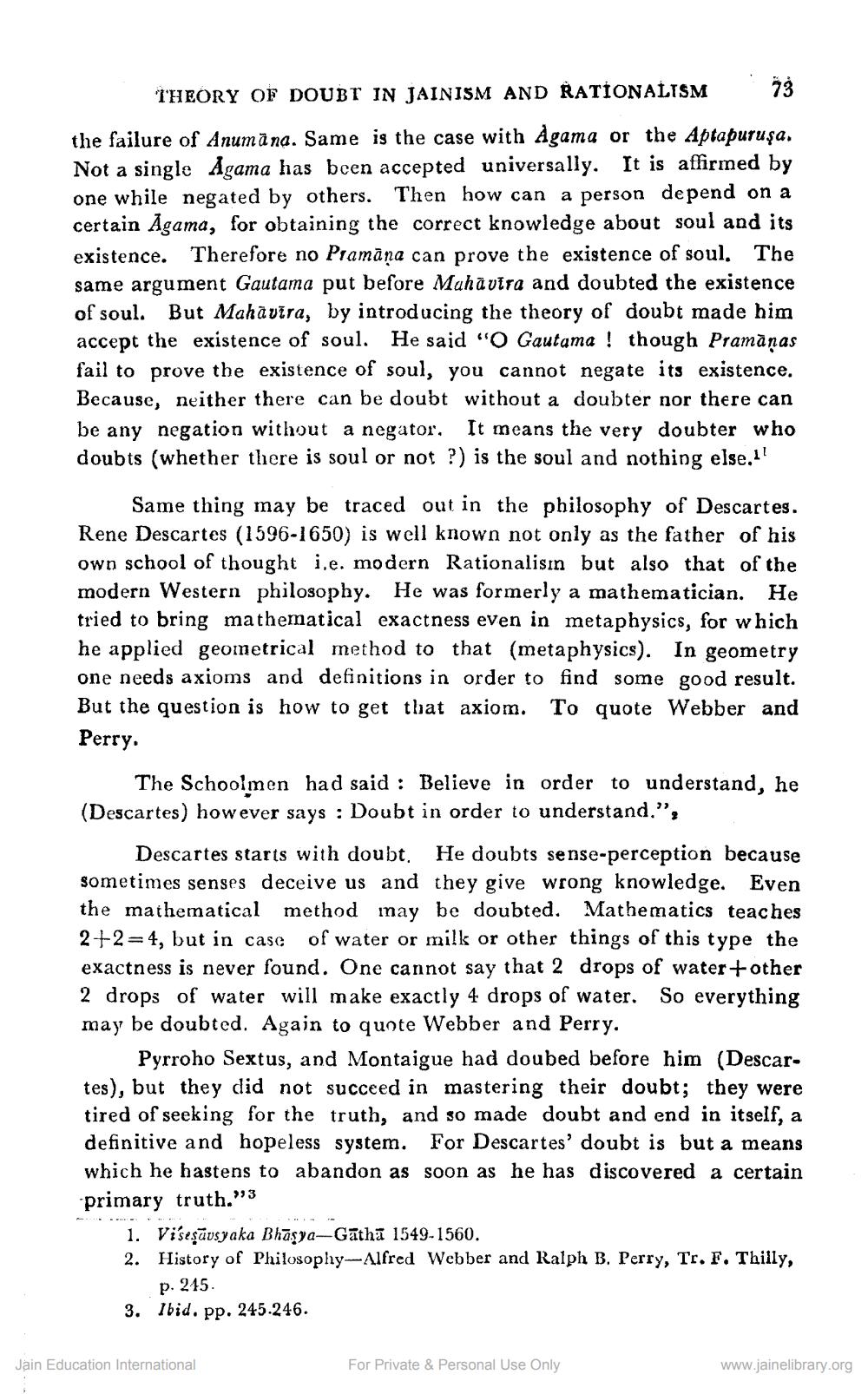________________
THEORY OF DOUBT IN JAINISM AND RATIONALISM 73 the failure of Anumāna. Same is the case with Agama or the Aptapuruşa. Not a single Agama has been accepted universally. It is affirmed by one while negated by others. Then how can a person depend on a certain Agama, for obtaining the correct knowledge about soul and its existence. Therefore no Pramāṇa can prove the existence of soul. The same argument Gautama put before Mahavira and doubted the existence of soul. But Mahāvīra, by introducing the theory of doubt made him accept the existence of soul. He said "O Gautama ! though Pramānas fail to prove the existence of soul, you cannot negate its existence. Because, neither there can be doubt without a doubter nor there can be any negation without a negator. It means the very doubter who doubts (whether there is soul or not ?) is the soul and nothing else,
Same thing may be traced out in the philosophy of Descartes. Rene Descartes (1596-1650) is well known not only as the father of his own school of thought i.e. modern Rationalisin but also that of the modern Western philosophy. He was formerly a mathematician. He tried to bring mathematical exactness even in metaphysics, for which he applied geometrical method to that (metaphysics). In geometry one needs axioms and definitions in order to find some good result. But the question is how to get that axiom. To quote Webber and Perry.
The Schoolmen had said : Believe in order to understand, he (Descartes) however says : Doubt in order to understand.”,
Descartes starts with doubt. He doubts sense-perception because sometimes senses deceive us and they give wrong knowledge. Even the mathematical method may be doubted. Mathematics teaches 2+2 = 4, but in case of water or milk or other things of this type the exactness is never found. One cannot say that 2 drops of water tother 2 drops of water will make exactly 4 drops of water. So everything may be doubted. Again to quote Webber and Perry.
Pyrroho Sextus, and Montaigue had doubed before him (Descartes), but they did not succeed in mastering their doubt; they were tired of seeking for the truth, and so made doubt and end in itself, a definitive and hopeless system. For Descartes' doubt is but a means which he hastens to abandon as soon as he has discovered a certain primary truth."3
1. Viseşāvsyaka Bhāsya-Gathā 1549-1560. 2. History of Philosophy-- Alfred Webber and Ralph B. Perry, Tr. F. Thilly,
p. 245. 3. Ibid. pp. 245.246.
Jain Education International
For Private & Personal Use Only
www.jainelibrary.org




